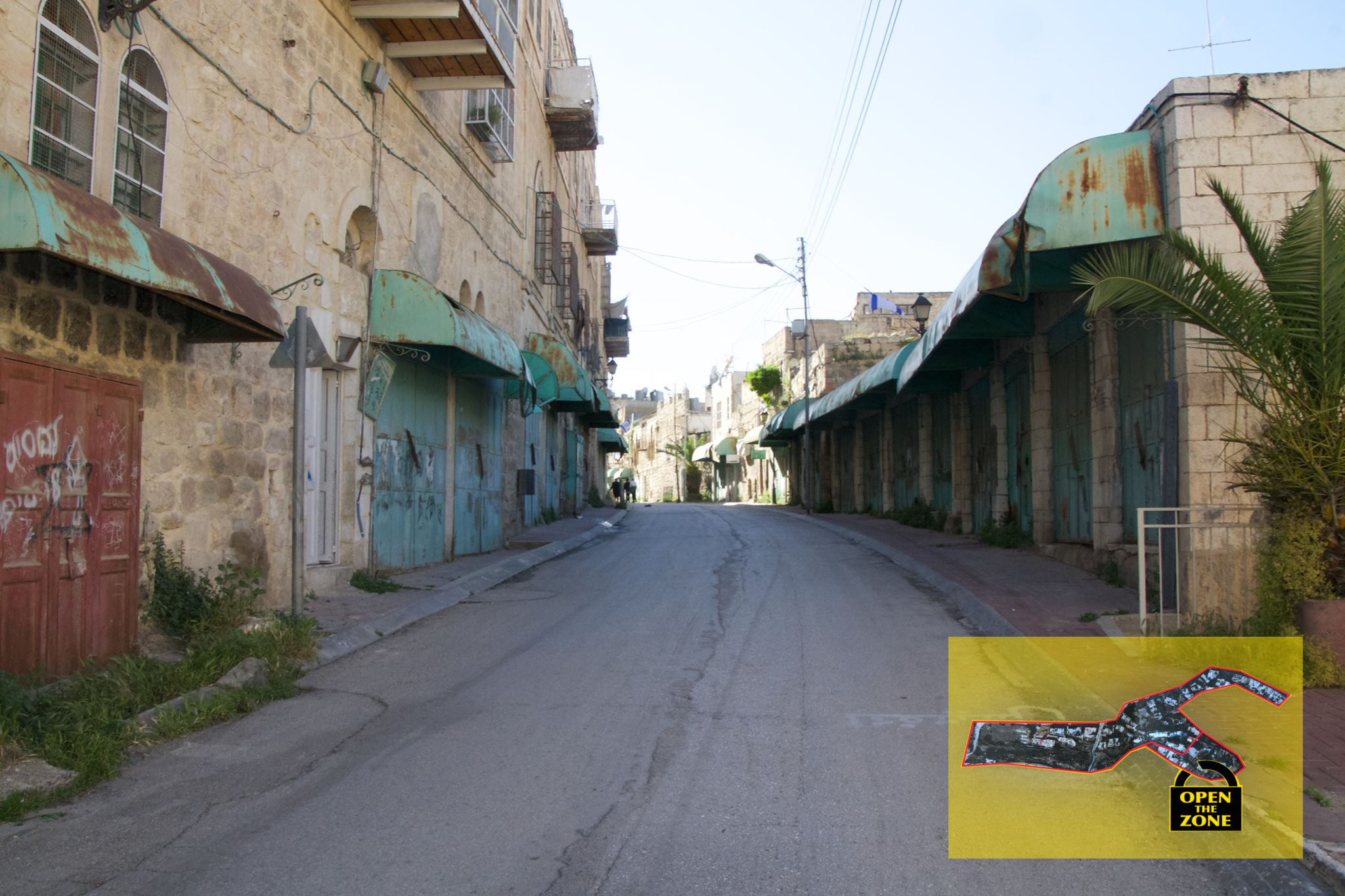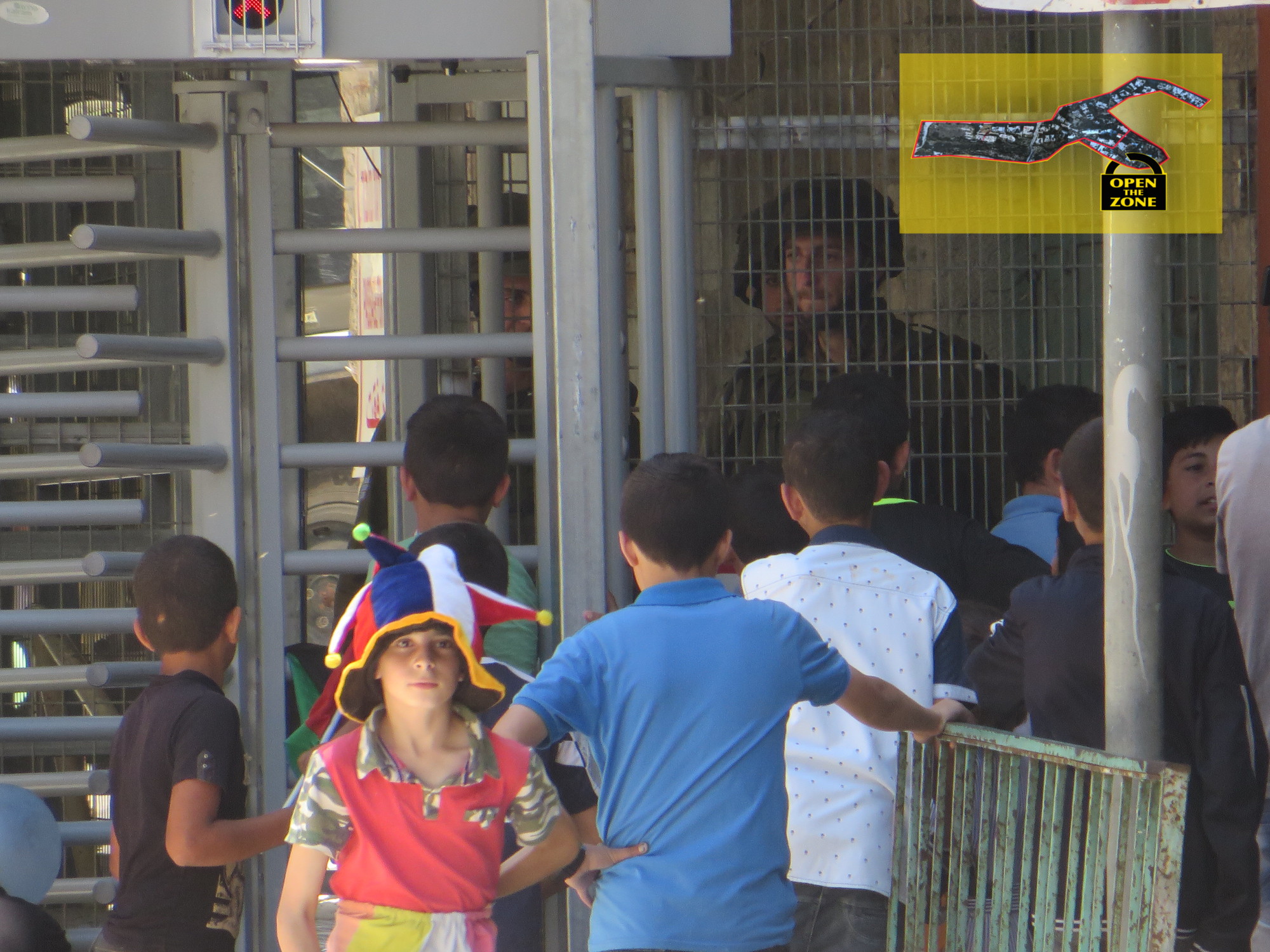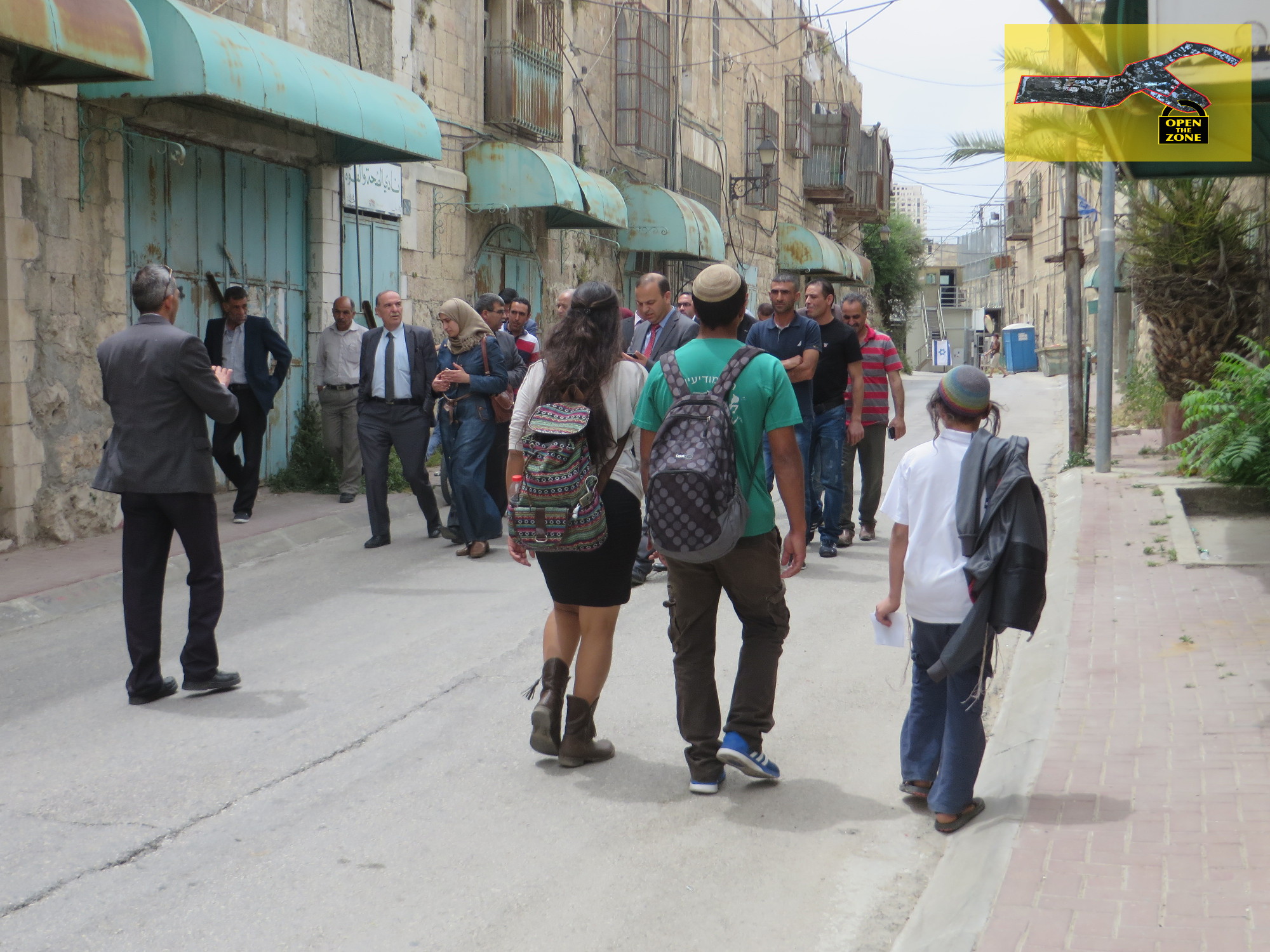Tag: International law
-
Al-Nakba day: The biggest crisis in the history of Palestine
15th May 2016 | International Solidarity Movement, al-Khalil team | Occupied Palestine Today, 68 years ago, the state of Israel was created on the Palestinian peoples’ home. The anniversary falls after a winter and spring with an escalation in violence and arrests of Palestinians, ever-expanding Israeli settlements in the West Bank and the Palestinian capital…
-
Open The Zone: press conference
13th May 2016 | Open the Zone campaign | Hebron, occupied Palestine On 12th May 2016, the Open the Zone campaign held a press conference in front of Shuahda checkpoint in Hebron – protesting the continuous collective punishment and denial of human rights to Palestinians in the ‘closed military zone’. The press conference was launched…
-
Open The Zone: municipality delegation visit to CMZ
10th May 2016 | Open The Zone Campaign | Hebron, occupied Palestine Yesterday, 9th May 2016, the Mayor of Hebron and several employees of the municipality of Hebron visited the closed military zone in Shuhada Street and the Tel Rumeida neighbourhood in the framework of the Open The Zone campaign. The delegation from the municipality…



